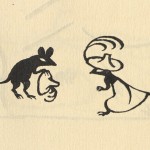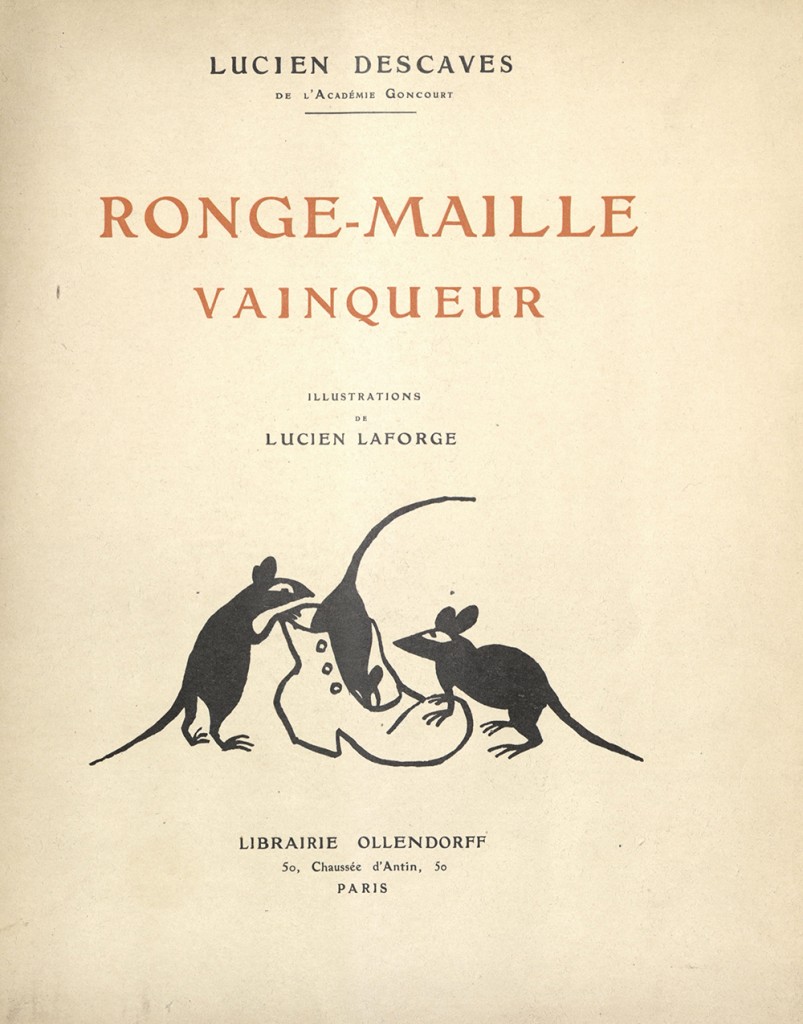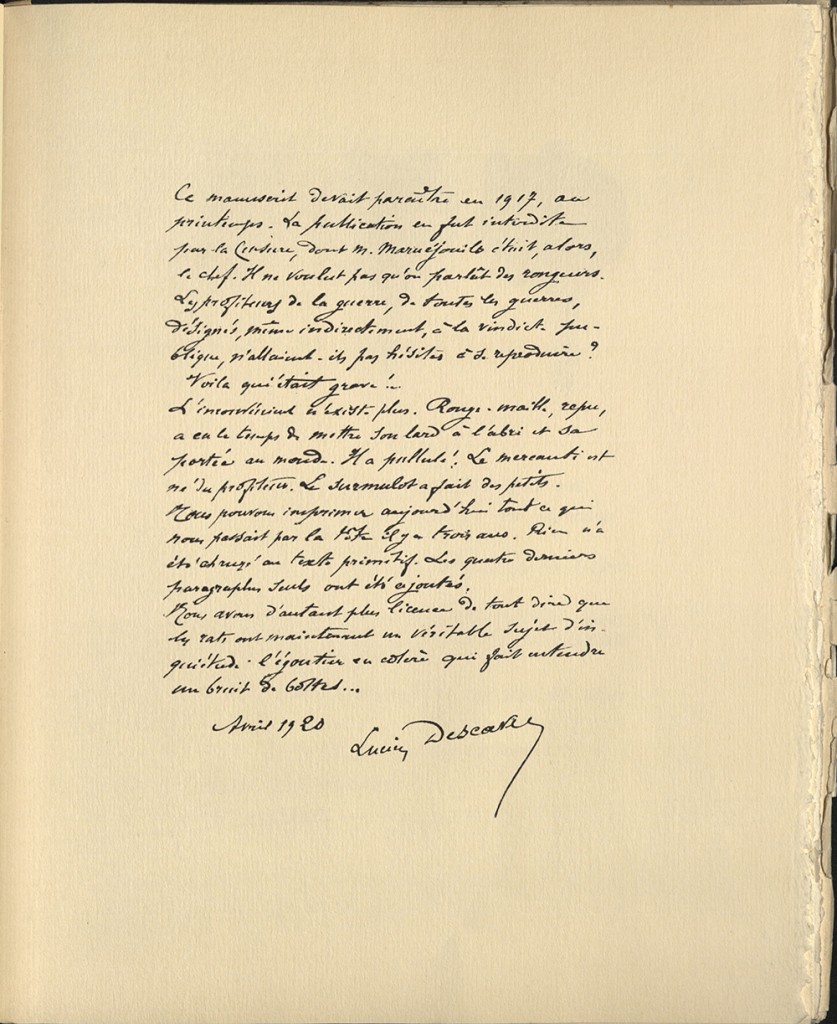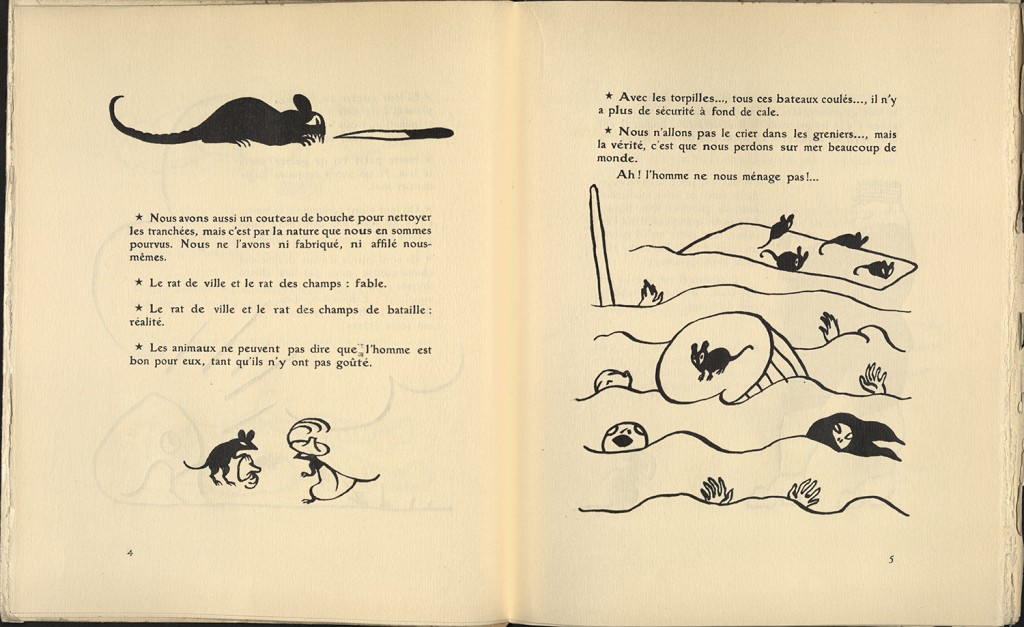 This post is part of an ongoing series featuring items from the newly acquired Julio Mario Santo Domingo collection.
This post is part of an ongoing series featuring items from the newly acquired Julio Mario Santo Domingo collection.
By the controversial nature of its subject areas, the Santo Domingo Collection naturally includes a wealth of banned, censored, or otherwise suppressed literature. Ronge-maille vainqueur, a text by the French novelist Lucien Descaves and illustrated by Lucien LeForge, is one example. This edition, published in 1920, includes a facsimile of a manuscript note from Descaves explaining that while the manuscript was produced in 1917, its publication was “forbidden by the censors” for the subsequent three years.
That Ronge-maille vainqueur would be more controversial in 1917 than in 1920 is easily explained: the text is a satirical denunciation of war, written in the form of a series of observations made by a common rat, in order to teach mankind what he knows. The rat celebrates the bounty of corpses that feeds his brethren during wartime: “Years when the harvest is red are, for us, years of abundance” and “For our little war cry, we’ll use their own. We’ve always had the last word” are among his maxims. As for war’s toll: “When a shell falls on a shelter and crushes it, no mention is ever made of the rats trapped under the rubble. Yet these are victims too, and the more innocent.” Using this rat’s perspective, illustrated by LeForge’s bold ink drawings, Descaves condemns war and particularly its profiteers. This wasn’t Descaves’s first word on the subject: the author drew from his own military service to write his anti-military novel, Sous-offs, in 1889. He and his publisher, Librarie Stock, were prosecuted for offending the army, and Descaves was ultimately stripped of his military rank.
Lucien Descaves. Ronge-maille vainqueur.Paris: Librairie Ollendorff, [1920]. PQ2218.D442r 1920
Thanks to rare book cataloger Ryan Wheeler for contributing this post.



